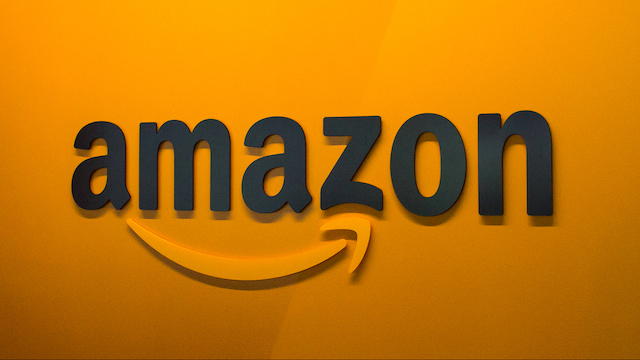 by Jaana Woiceshyn
by Jaana Woiceshyn
In a recent Financial Post column, Lawrence Solomon accused Amazon for “fleecing the taxpayers” through its lobbying for tax breaks and other corporate welfare from government and thus driving brick-and-mortar competitors out of business, which has led to tens of thousands job losses.
The $3 billion in tax breaks the company was promised by New York (I don’t know whether both by the city and the state governments) to build second headquarters there drew so much criticism that Amazon decided to abandon the plan. One of the most vocal critics of Amazon’s NYC plan and the tax breaks was the Democratic congresswoman and self-declared socialist Alexandria Ocasio-Cortez, whom Solomon praised for having done service to free enterprise.
Solomon seems to have missed the fact that it is not Amazon that is fleecing the taxpayers but the government. Government collects taxes from citizens and decides how to “re-distribute” them. Government, sanctioned by voters, has created the current mixed economy system, where it meddles in the economy and business by creating policies, regulations, and various programs, such as corporate welfare schemes.
Is it immoral of companies to lobby governments for tax breaks?
As Terence Corcoran writes in an excellent Financial Post editorial, the government meddling in the economy forces corporations to hire lobbyists. Corporations need lobbyists to protect themselves in order to compete in a system where the government, not the free markets, rule the economy.
Consider the example of Microsoft. Bill Gates initially resisted lobbying the government in any way and ignored the advice to invest in “a man in Washington,” which left Microsoft vulnerable against government coercion. In the 1990s, the U.S. government went after Microsoft, suing it for the “crime” of bundling (offering for free) its internet browser with its Windows operating system. The government action was in part triggered by aggressive lobbying by competing browser companies (such as Netscape).
Bill Gates caved in, and Microsoft now spends millions of dollars (reportedly, $8.5 million in 2017 and increasing every year) on lobbying the government.
So how are large corporations, such as Amazon and Microsoft, to operate morally in the mixed economy system where government meddling in the economy is continually increasing?
The moral choice of action is to advocate free markets and much a smaller government, as that would be in the long-term self-interest of the corporations (their shareholders). Free markets would also be consistent with the requirements of human flourishing and lead to win-win outcomes for all.
In a free market system—capitalism—where government performs its only proper role of protecting individual rights against the initiation of physical force, competition spurs innovation and better, cheaper products and services. Companies profit, and those most successful at innovation profit the most. Everyone else also benefits, including those companies that did not succeed in a particular competition or industry. Nobody is getting “fleeced”.
Microsoft was trying to compete and innovate as in a free market system. It was very successful at it and also benefitted millions of people and businesses with its products. But in a mixed economy, too much success goes against the principle of equality, prompting the government to step in to “level the playing field.”
Given that we don’t have free market capitalism but a mixed economy, is it immoral of companies to lobby governments for tax breaks or protection against government intrusion?
Such lobbying is ethical—as long as companies do not become government cronies. For example, if Amazon were to lobby government for a coercive monopoly (which bans competition) and then jack up its prices, it would be a government crony that would exploit customers based on government force against competition. That would be “fleecing.” Lobbying the government for tax breaks that benefit, not only Amazon shareholders but its customers and employees and other businesses that emerge and thrive thanks to wealth creation by Amazon, is not “fleecing.”
It’s true that some brick-and-mortar stores are not able to compete with Amazon, but that is not due to Amazon alone, but to online shopping in general, made possible by technology which enhances human flourishing. Besides brick-and-mortar retail, that technology has disrupted other industries, such as taxi (monopolies) and hotel accommodations. Jobs are lost in these industries, but new—and new types of—jobs are created in other industries—if only government keeps its hands off, stops fleecing us, and lets markets be free.
Leaders of large corporations, such as Jeff Bezos of Amazon, could facilitate that by allocating part of their lobbying budgets to shrinking the government and by publicly advocating free markets—on the condition that free speech without government penalty is still possible.
Jaana Woiceshyn teaches business ethics and competitive strategy at the Haskayne School of Business, University of Calgary, Canada. She has lectured and conducted seminars on business ethics to undergraduate, MBA and Executive MBA students, and to various corporate audiences for over 20 years both in Canada and abroad. Before earning her Ph.D. from the Wharton School of Business, University of Pennsylvania, she helped turn around a small business in Finland and worked for a consulting firm in Canada. Jaana’s research on technological change and innovation, value creation by business, executive decision-making, and business ethics has been published in various academic and professional journals and books. “How to Be Profitable and Moral” is her first solo-authored book.


